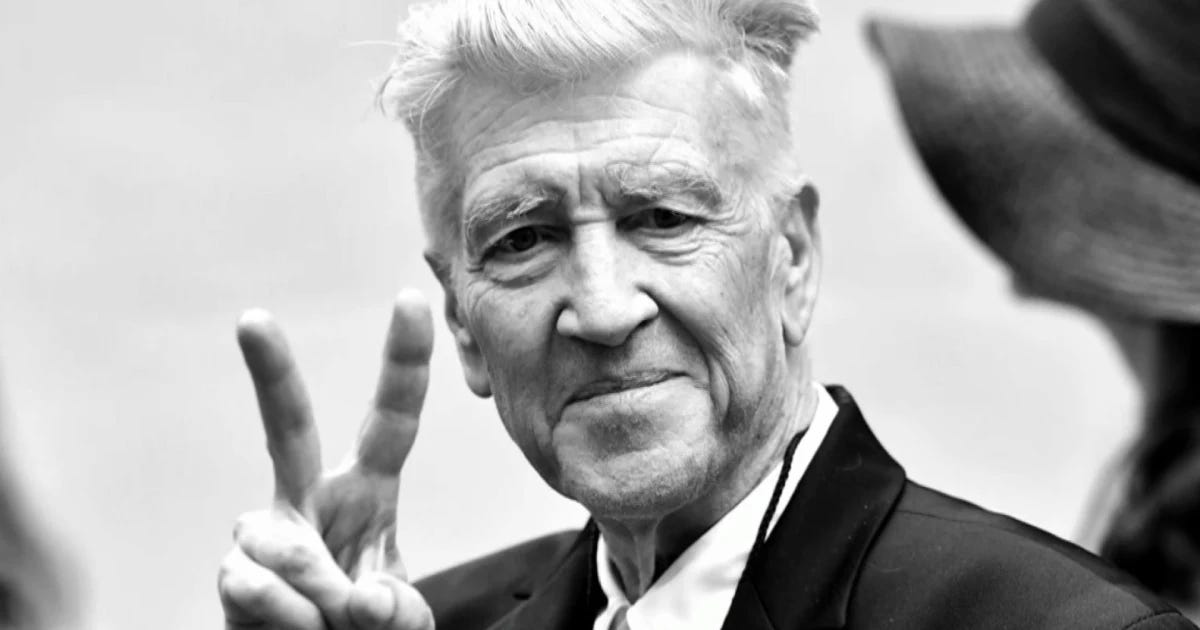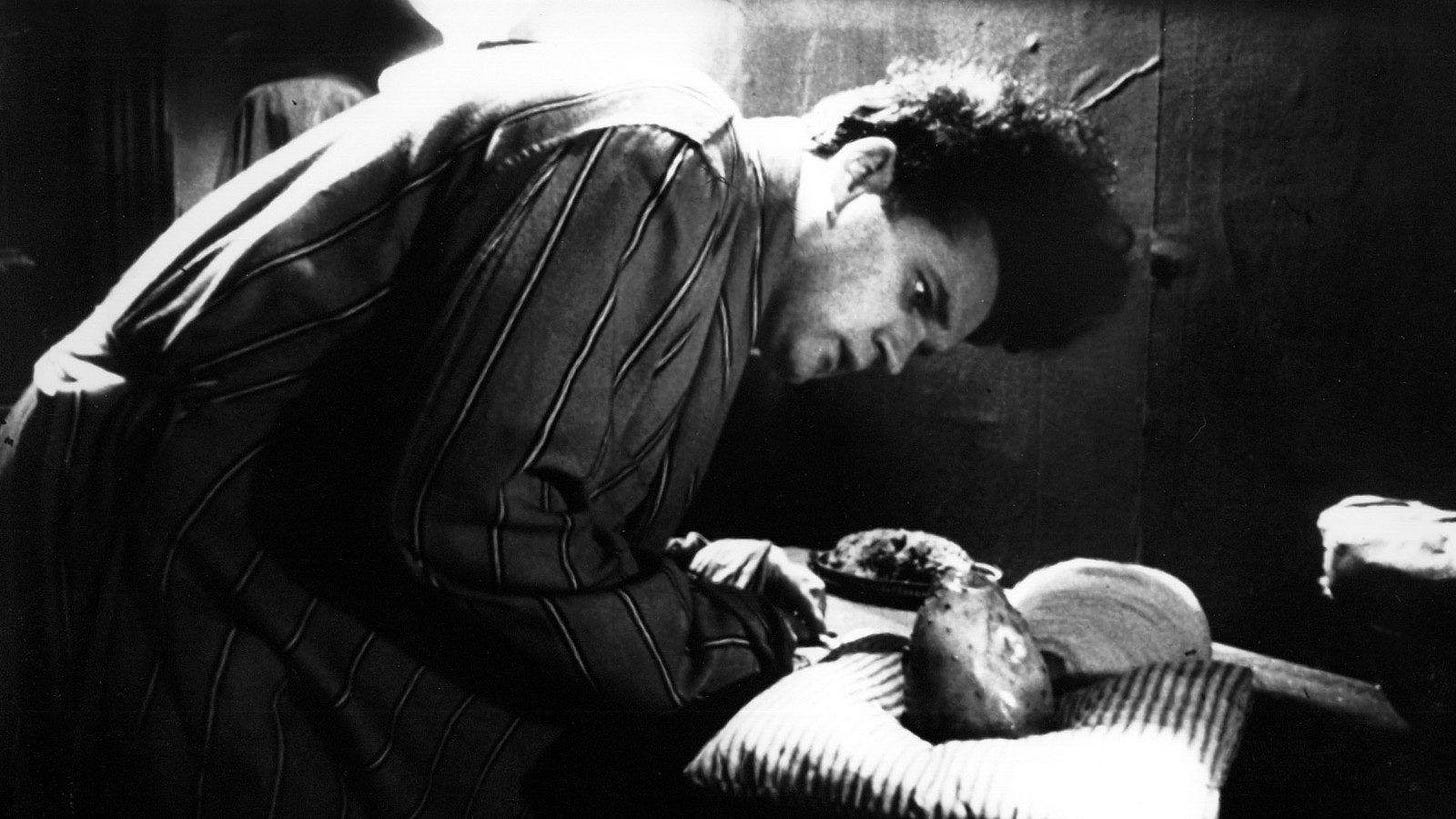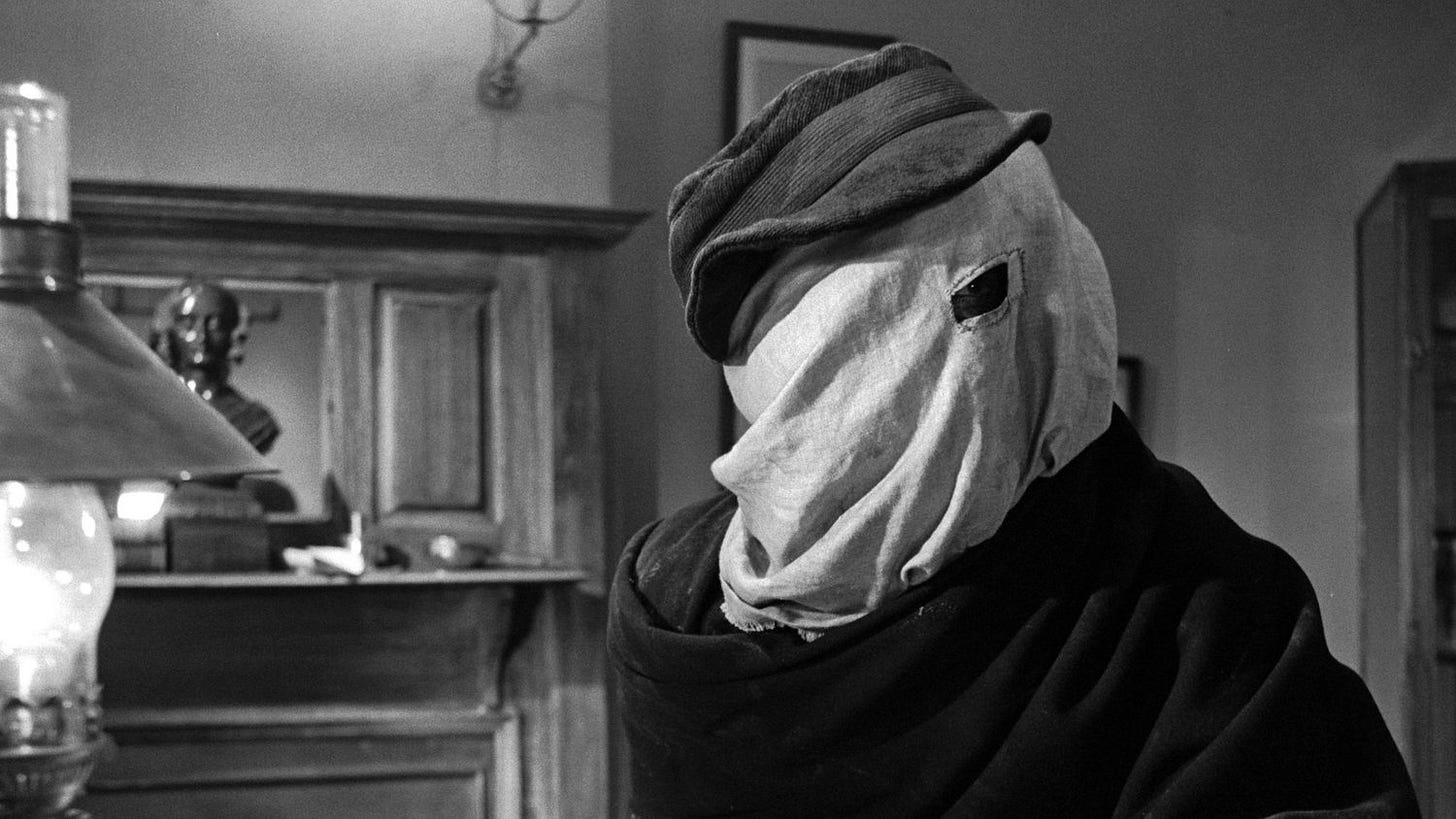I was at a cute coffeehouse in Wilmington, Delaware, scrolling through Zillow listings of apartments in Philadelphia. Something between strategizing and fantasizing. My cursor drifted from Northern Liberties, down to East Passyunk, then slowly drifted back to possibly Philly’s most notable Westward neighborhood: Fairmount. It surrounds the iconic Philadelphia Museum of Art, where Rocky Balboa famously concluded his epic training marathon.
Pretty cool stuff, especially if you’re a Film Bro. Although, that’s not why I was eyeing Fairmount. To me, its true claim to film history is that it was the former neighborhood of the one and only David Lynch, the inimitable maestro of Americana surrealism who directed personal favorites of mine, from Blue Velvet to Twin Peaks. Lynch lived in Fairmount while attending the Pennsylvania Academy of Fine Arts, where he studied painting. Born and raised in Montana, the fresh-faced Lynch moved to Philadelphia in one of the city’s darkest chapters. It was rife with crime and urban decay after being severely hit by White Flight. The industrial wasteland that was ‘70s Philadelphia made such an impression on David Lynch that it partially inspired his directorial debut, Eraserhead, which he facetiously referred to as “The True Philadelphia Story.” That’s led the locals to affectionately refer to Fairmount as “Eraserhood.”
It was at that moment, as I clicked on the second available listing in “Eraserhood,” that I got a text from my Dad. It was a Reddit link. My Dad asked, “Is this real?” I clicked on it - then my hands started shaking. No, no, no. I start Googling while whispering a little prayer. Please don’t let this be real.
But it was. I was dumbstruck. And dumb. I accidentally knocked my chicken salad sandwich off the table. The other patrons stared at me. “Sorry. David Lynch just died.”
It shouldn’t have come as a shock. Lynch recently announced that he couldn’t leave his L.A. residence anymore due to his ongoing battle with emphysema. We don’t know the exact cause of death, but it’s hard not to speculate that the severe air pollution caused by the Palisades wildfires could have contributed.
Jack Nance in ‘Eraserhead’
Yet there I was, shocked. It was hard to believe that the man would ever die. His imagination was so vast that he verged on omniscient. He was such a divine creation, a man of unparalleled creativity and insight, that he just seemed eternal. Hearing that David Lynch just died was akin to hearing that one of the Seven Wonders of the World had been toppled.
Even now, I struggle to articulate the scale and force of David Lynch’s legacy. His films were equally cerebral and primal. He found the blackest humor in the most potent nightmares. He understood the American character like none of his peers and captured the full gambit of ugly-to-beautiful within the human spirit. He turned idyllic small towns into hellscapes of the underworld. He found humanity in Joseph Merrick, a historical figure who most saw as a freak of nature. David Lynch was a scientific accident that resulted in perhaps the most singular voice of Western pop culture. You could see the intersection of his most enduring qualities within Twin Peaks and Twin Peaks: The Return, the latter of which was his final major project. I’m just grateful that my Dad & I were able to watch it live - what an event that was
That’s not to say his work always connected with audiences or critics. Science-fiction diehards haven’t forgiven his Dune adaptation. Quentin Tarantino famously said that he was “done” with David Lynch after the Twin Peaks spin-off, Firewalk With Me, a sentiment that the public largely shared. Siskel and Ebert were so notoriously critical of his films that Lynch “boasted” about getting Two Thumbs Down for Lost Highway on the film’s poster.
John Hurt in ‘The Elephant Man’
We often made the mistake of thinking that we understood Lynch, had his schtick down to a T. He just made weird, barely linear narratives and was in it soley for the visuals. He wasn’t the incoherent daydreamer that his critics saw, nor the bleak nihilist that some fans mistook him for. Everyone pictured him as an alien with a barely-functioning understanding of how people worked, or how they functioned. He talked as if he studied human speech by watching old Leave It To Beaver re-runs.
It’s the weird factor that hooked me and so many others into Lynch’s films, and his world. Severed ears in the grass. Gotta see what that’s about. Sure, sure, I wanna know who killed Laura Palmer, but what’s going on with this midget? Why is everyone speaking backward?
The weird was the hook, but it wasn’t the reward, and it’s not how Lynch earned the devoted following that’s mourning him right now. Relationships were always at the core of his themes, and always anchored his narratives. No matter how biazzare. Eraserhead isn’t the most approachable movie (unless you’re a fellow sicko who thinks that mutant baby is plain-freaking-awesome) but it was ultimately an honest expression of anxieties that Lynch personally struggled with after becoming a father. Mulholland Drive is cryptic as hell, and I can’t explain it except for one thing: Lynch knew the pain of chasing a dream, and the willful delusion that’s required of anyone trying to make it in showbiz.
To anyone who thought Lynch was an alien that didn’t understand us regular folk - quite the opposite. He was unapologetically human and was fascinated by what the experience of life had to offer - the horrors, the unforgettable characters, the beauty, and the decay. He’s reshaped not just how I watch movies, but how I view the world. His films articulated subliminal thoughts and proved that the subconscious could be photographed.
Dennis Hopper in ‘Blue Velvet', ladies and gentlemen
I can’t walk through Northern Philly without picturing Henry making his trek through Eraserhead’s urbanist dreamscape. Back during the pandemic, watching The Straight Story helped me fall in love with this country again even though it was at an all-time-low. Hell, I don’t drink Heineken anymore because Blue Velvet’s Frank Booth would so viciously disapprove. Frank Booth is still cinema’s greatest villain, by the way.
Europeans would claim that David Lynch was America’s only credible surrealist, but the truth is that he’s the most utterly American auteur this country has ever produced. So much so that David Lynch makes me proud to be an American, and his films make me grateful to be alive.
It’s hard knowing that we’ll never get another Weather Report from him, or that we’ll never know the Number of the Day ever again. But I, for one, am going to celebrate Lynch’s legacy by sipping on a cup of Hot Joe a la Special Agent Cooper and traversing the streets of Eraserhood.








